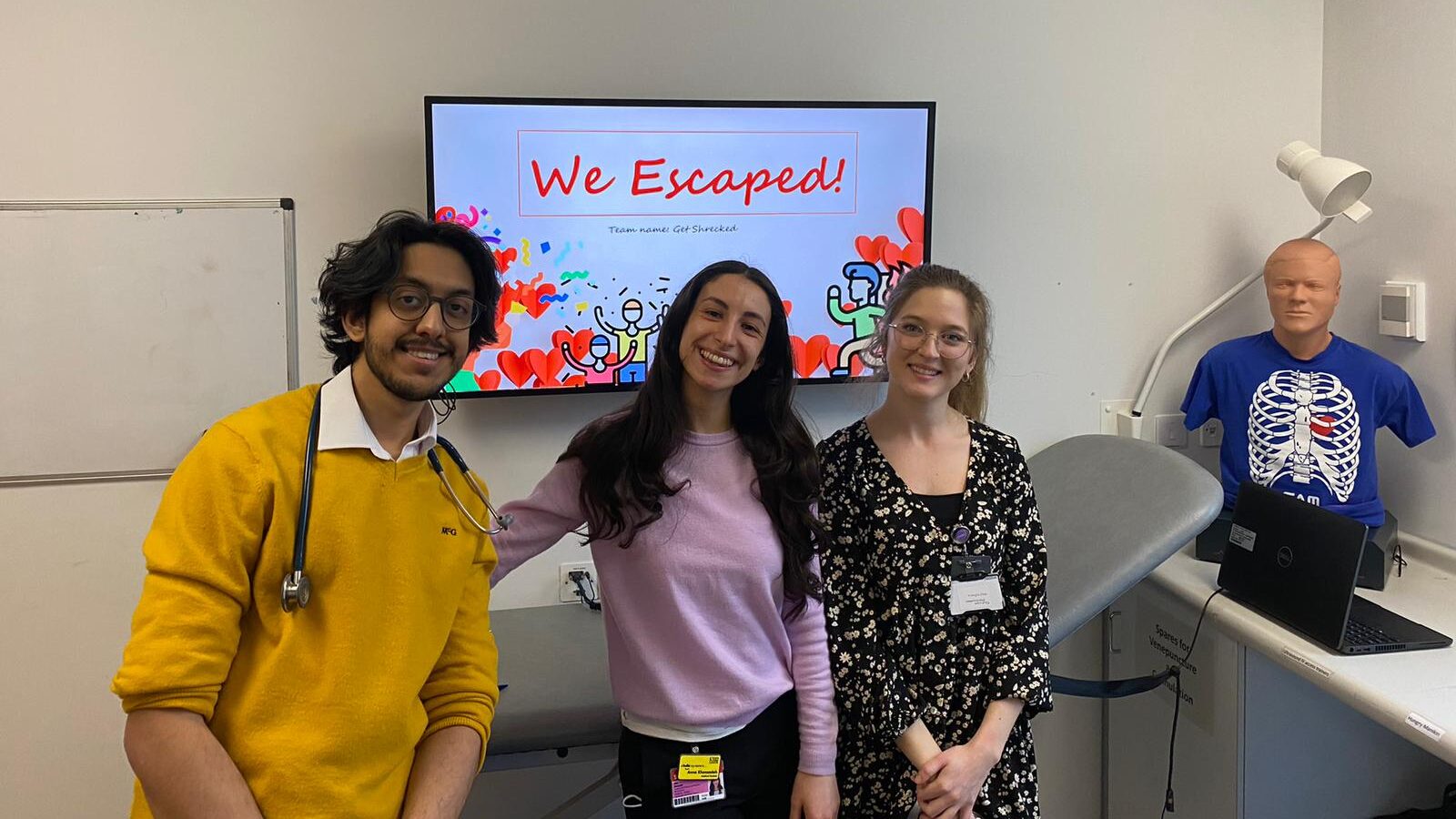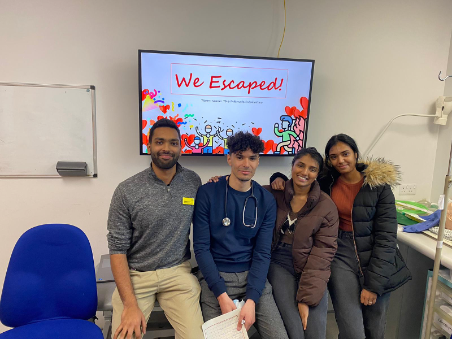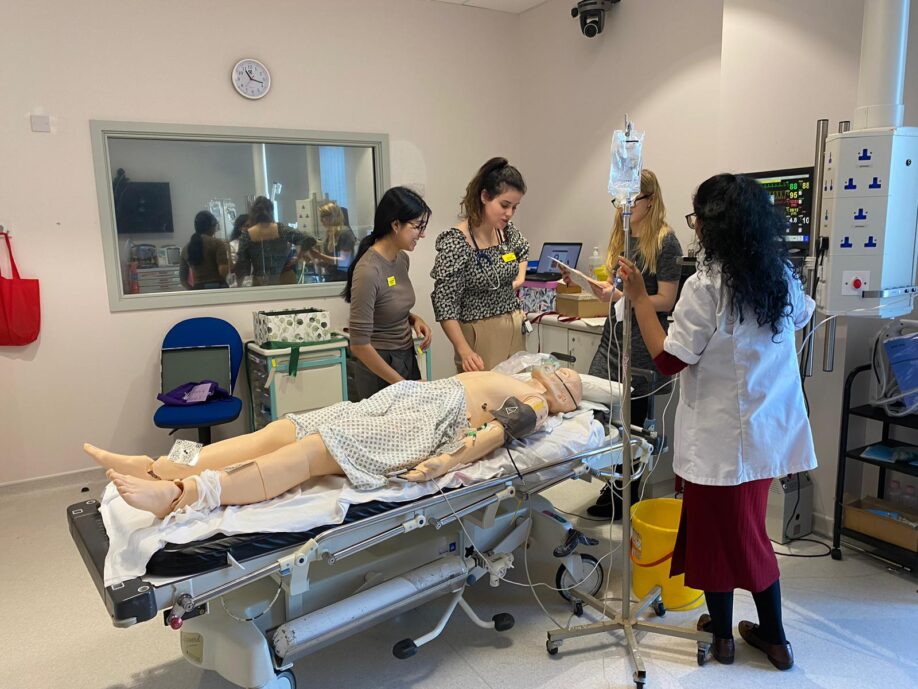Education teams are combining technology simulating the clinical environment with a novel ‘escape room’ format to help medical students at Maidstone and Tunbridge Wells NHS Trust (MTW) develop their skills.
Simulation technology enables the Trust’s Medical Education teams to recreate scenarios they may rarely experience in real life, and tests healthcare professionals in challenging situations. Simulation manikins let the students practice, in safety, the technical and non-technical skills they need to provide care to patients. The students are debriefed afterwards so they can reflect on the experience, making simulation a powerful learning tool to help healthcare professionals achieve higher levels of competence and provide safer care.
Medical Education Fellows at MTW created the concept of a simulation-based escape room for medical students in years 4 and 5 of their medical degree, to create a fun, practical environment for students to develop their learning. The aim was to help students feel more comfortable in what can be a daunting simulation environment.



An escape room is a physical adventure game in which players are ‘locked’ in a room and have to use elements in it to solve a series of puzzles which allow them to escape in a set time limit. Used in a medical education environment, they allow assessments, tests or diagnostics to be identified and used to solve clues which move learners forward towards a diagnosis.
Escape rooms are also opportunities to practice skills such as teamwork, and organisation; human factors which are increasingly shown to affect patient outcomes. They create a fun and engaging environment to help learners practice key skills which will make a difference for the patients they later care for.
The medical escape room concept involved teams of four instead of the usual pairs for simulations. The format lasts longer than a normal simulation scenario, so learners spend more time with the patient and can work together on a more complex scenario. This gives the team more time to practice assessing the patient, prescribing, referring, and considering problems.
Each patient was provided with both a medical and non-medical storyline so if the team did the right medical actions, such as prescribed the correct medication, they found out more about the patient. QR codes were used to show injuries or a scan result – i.e. a full bladder requiring a catheter – which would guide the escape room team to the next course of action to take.
The initiative has received overwhelmingly positive feedback from students, who commented that it has enhanced their clinical knowledge and non-clinical skills. The concept helped show how important team working is in managing an acutely unwell patient and the exercise pushed teams to communicate more between themselves, and for leadership roles to emerge.
The team were invited to present their work at the Association of Medical Educators Learning Together for Clinical Excellence conference and will also present the concept at the Association for Simulated Practice in Healthcare (ASPiH).
Watching the students do the escape room simulation was a really rewarding experience, seeing them gaining confidence and working as a team to a manage a complex patient, putting their heads together and evolving into a team of junior doctors. They never gave up and they were enjoying the experience. Being involved in the debriefs was also a very enriching experience for us as Fellows too, and it is interesting to see other trusts starting to use similar techniques.
Medical Education Fellow, Dr Aalia Pagarkar said: “Watching the students do the escape room simulation was a really rewarding experience, seeing them gain confidence and working as a team to a manage a complex patient, putting their heads together and evolving into a team of junior doctors. They never gave up and they were enjoying the experience. Being involved in the debriefs was also a very enriching experience for us as Fellows too, and it is interesting to see other trusts starting to use similar techniques”.
“ It’s exciting to create new ways of supporting our medical students. This generation were particularly affected by the pandemic as it limited patient contact, so it’s hugely important to us to give them more opportunities and help familiarise them with the clinical environments and teams they will be working in when they qualify”.
Dr Aalia Pagarkar, Medical Education Fellow
Consultant Dr Peter Springbett, who supervised the Medical Education Fellows in developing the escape room concept, said: “Aalia and the team have worked really hard this year. It has been a pleasure to supervise them and see their innovation recognised at an international conference.
“This novel concept enables the delivery of experiential learning in a fun, engaging environment, leading to meaningful learning of clinical and non-clinical skills. I look forward to seeing how the project evolves.”
